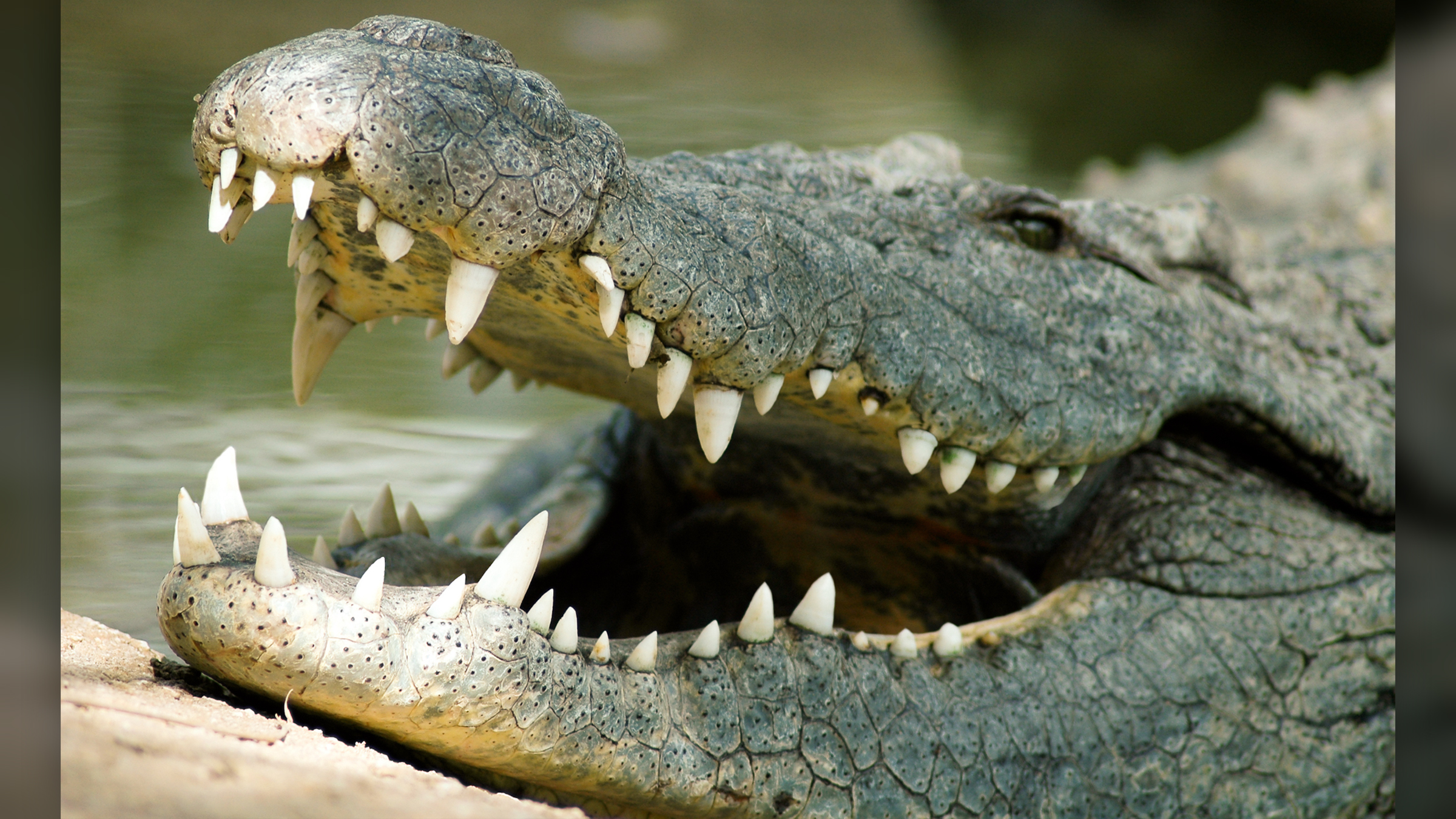
A man in Australia recently escaped from the reptilian jaws of death after a crocodile clamped down on his head.
Marcus McGowan was snorkeling about 25 miles (40 kilometers) from the Cape York coast in Queensland when a saltwater crocodile (Crocodylus porosus) attacked him from behind. These reptiles have the strongest measured bite force of any animal on Earth. But McGowan pried open the reptile's jaws before it could snap down even harder.
"I was able to lever its jaws open just far enough to get my head out," McGowan said in a statement released by the Cairns and Hinterland Hospital and Health Service. "The crocodile then attempted to attack me a second time, but I managed to push it away with my right hand, which was then bitten by the croc."
He was then taken to hospital and treated for scalp lacerations and puncture wounds on his head and hand — relatively minor injuries considering he went head to head with one of the planet's most powerful predators.
Related: How are alligators and crocodiles different?
Powerful bite
Crocodiles are well known for their vice-like jaws. "It might look like they have really fat necks, but actually that's extra jaw muscle," Paul Gignac, an anatomical researcher at the University of Arizona, told Live Science.
This gargantuan neck muscle — known as the ventral pterygoideus muscle — enables adult saltwater crocodiles to clamp down on their prey with a force of 3,700 pounds per square inch (16,460 newtons), according to a 2012 study co-authored by Gignac. In comparison, jaguars (Panthera onca) can bite down with a force of around 1,500 psi.
McGowan believes the crocodile that attacked him was about 6.5 to 10 feet (2 to 3 meters) long, which suggests it was a juvenile. However, even young crocodiles can pack a serious punch, generating around 250 psi (1,112 newtons) of bite force at the back of their jaws, Gignac said.
"It is generally surprising [McGowan survived]," Gignac said. Crocodiles are "not known to let go once they hold on."
Gignac noted that "this man's probably especially lucky that the juvenile was either too small or didn't have a positioning to start rolling," a behavior known as a "death roll," in which crocodiles violently twist in the water while holding their prey to disorient or dismember it. "Otherwise, it might be the case that this person would have lost a limb."
Staring death in the face
So how exactly did McGowan escape the crocodile's vice-like grip? There could be a few factors at play. For one, the crocodile may not have been able to wrap its entire jaw around McGowan.
"The bite force gets lower as you go out away from the jaw joint," Gignac said. "So the tip of their snout will typically have about 40% lower bite force, and that's just due to the engineering or the physics behind the way levers work."
The croc's stamina may also have played a part. Reptiles are cold blooded, or ectothermic, meaning they largely rely on external heat sources to manage their body temperatures and have slower metabolisms than warm blooded, or endothermic animals. As a result, they typically have smaller reserves of energy than most endothermic animals. So even though a crocodile's attack may be vicious at first, "they do become tired relatively quickly," Gignac said, adding that crocodiles need rest before reaching peak performance again.
Under these conditions, then, it may be possible for a human to dislodge themselves from a crocodile's mouth. When attacked, humans often release massive amounts of adrenaline, which speeds up the heart and breathing rate. This reaction increases the oxygen sent to muscles, giving someone a temporary energy boost.
"A full grown man with adrenaline could — in that situation — pry open a 200-pound vise essentially," Gignac said. "I think it would be difficult but, you know, when you don't really have any other choice, you go for it. So it's not out of the realm of possibility."
So what should you do if you find yourself in a fight with this apex predator?
"If you have an object with you, and you have the wherewithal to go for the eyes, that's probably the most sensitive place on [the] head of a crocodile or an alligator," Gignac said. "My best advice is to not get yourself into a scenario where you have to fight off an alligator or a crocodile."







